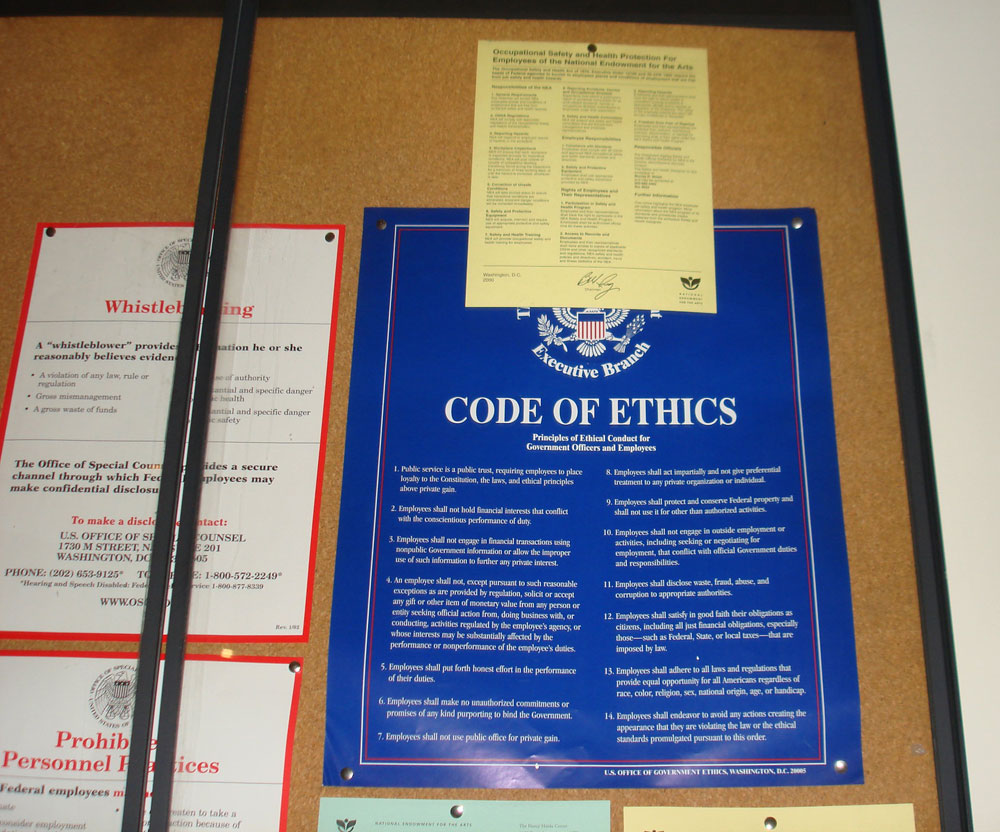
August 20, 2020; Slate
When one thinks about ethics—who is bound by ethics codes, and who should set the rules—the list these days sadly tends to be short. One would hope, though, that it would include federal judges, who regularly make serious decisions that affect our lives. A Codes of Conduct Committee of 15 federal judges, all appointed by Chief Justice of the Supreme Court John Roberts, is charged with providing ethical guidance for federal judges. The integrity of the federal judiciary is not something Roberts takes lightly. But some recent actions in the last two years by the Codes of Conduct Committee may bring the chief justice’s stance into question.
The Codes of Conduct bar political activity. In 2018, the committee issued Opinion 116, which looked at this topic in greater depth. It advises judges to stay away from organizations that are: (1) are associated with “hot button” political issues, or as perceived by the public as having adopted a consistent political or ideological point of view equivalent to the type of partisanship found in political organizations; and/or (2) are funded by sources affiliated with politically involved organizations. What Opinion 116 did not do was name any specific organizations.
Fast-forward to 2020. In January, the committee released Draft Opinion 117 for comment by federal judges. This opinion was an expansion of 116, in that it named specific organizations: the conservative Federalist Society; its liberal counterpart, the American Constitution Society (ACS); and the American Bar Association (ABA). The draft barred federal judges (including Supreme Court Justices) from memberships in the Federalist Society and the ACS. The response to this was an all-out assault on the committee from the Federalist Society, its members, and supporters. It should be noted that there was no such response from the ACS.
Perhaps some background here is in order. The Federalist Society for Law and Public Policy Studies was established in 1982. It is a group of conservatives and libertarians focused on reforming the legal order. As stated on their website, “We are committed to the principles that the state exists to preserve freedom, that the separation of governmental powers is central to our Constitution, and that it is emphatically the province and duty of the judiciary to say what the law is, not what it should be.” The Federalist Society has over 65,000 lawyers as members and its Law Student Division has over 10,000 members at 204 accredited law schools in this country.
Sign up for our free newsletters
Subscribe to NPQ's newsletters to have our top stories delivered directly to your inbox.
By signing up, you agree to our privacy policy and terms of use, and to receive messages from NPQ and our partners.
The American Constitution Society (ACS) is a newer organization, often referenced as the liberal counterpart to the Federalist Society. ACS membership is largely made up of lawyers and law students, with chapters in cities and on law school campuses, and its programs and activities focus on both education of their members and public policy work on issues of law and judicial integrity.
ACS accepted Draft Opinion 117; the Federalist Society did not—its wildly one-sided response seemingly negating its “apolitical” claims. More than 200 federal judges, most of whom were members of the Federalist Society and many of whom were shepherded through their recent appointments to the federal bench by that same Federalist Society, submitted a letter in opposition to Draft Opinion 117. Some 29 US Senators, all Republicans, also sent a letter to the committee opposing the draft and supporting the Federalist Society.
What was the committee to do? It could not withstand the heat coming from the Federalist Society, and so it got out of the kitchen and withdrew Draft Opinion 117 without comment last month.
What remains is political confusion. Opinion 116 tells judges to stay away from organizations that involve themselves in political activities or are publicly viewed as having a consistent partisan viewpoint, but no such organizations are named. And while these jurists, ethically, cannot be members of a political party per se, they can, if they wish, be in groups widely seen as aligned with those parties.
The distinction, in short, is hardly meaningful. The integrity of the federal court system requires that judges be impartial. The committee’s capitulation to political pressure does not speak well about the prospects for this norm to be maintained.—Carole Levine













